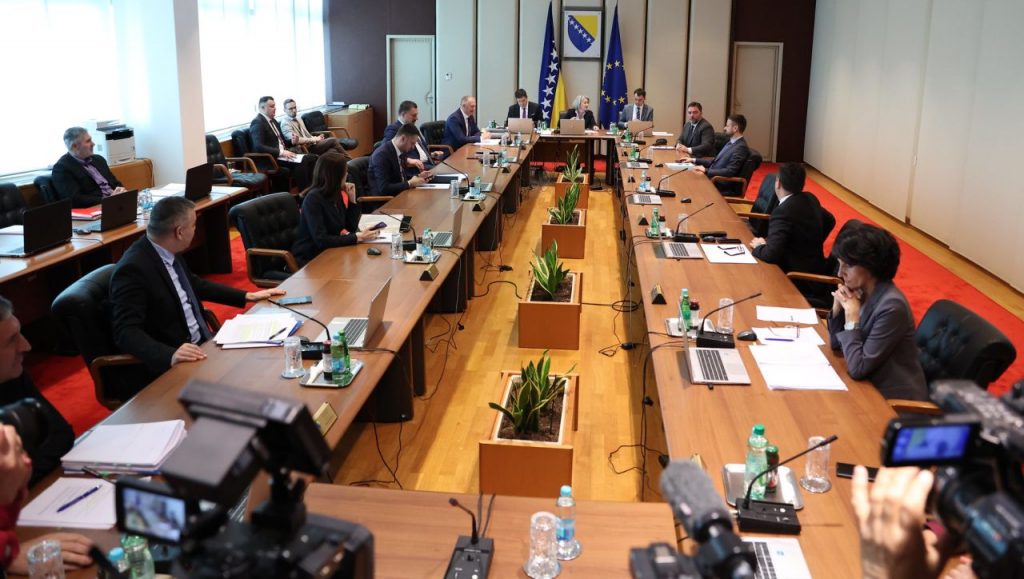
The Council of Ministers of BiH, at the session held yesterday in Sarajevo, adopted the Information of the Directorate for European Integration on the 7th meeting of the Special Group for Public Administration Reform between the European Union and Bosnia and Herzegovina, which will be held on April 16, 2024 in Sarajevo.
At the session, a document for discussion was adopted and the agenda was noted, and consent was given to the proposal of the delegation of Bosnia and Herzegovina for this meeting, which in two sessions will include a political dialogue at a high level and a dialogue on public administration reform at a technical level.
The chairman of the BiH delegation for high political dialogue will be the Minister of Justice of BiH Davor Bunoza, who will be available to the media for inquiries regarding this meeting. At the same time, during the dialogue at the technical level, the BiH delegation will be led by the coordinator for public administration reform, Darko Kasap.
The Council of Ministers of BiH, among others, on the proposal of the Public Administration Reform Coordinator’s Office, made a decision on the appointment of members and deputy members of the supervisory teams for the implementation of public administration reform in Bosnia and Herzegovina on behalf of the Council of Ministers of BiH in the new text and with accepted corrections at the session, it was announced from the Public Relations Service of the General Secretariat of the Council of Ministers of Bosnia and Herzegovina.
Representatives of the responsible institutions of the BiH Council of Ministers have been appointed to supervisory teams for six reform areas and, together with the appointed representatives of the governments of the Federation of Bosnia and Herzegovina, Republika Srpska and Brčko District of BiH, will direct and supervise the reform processes and ensure operational support for the implementation of agreed measures.
Reform areas are policy development and coordination, public finance management, civil service and human resources management, accountability, better service delivery and quality in this area, as well as digitization in the area of service delivery.
